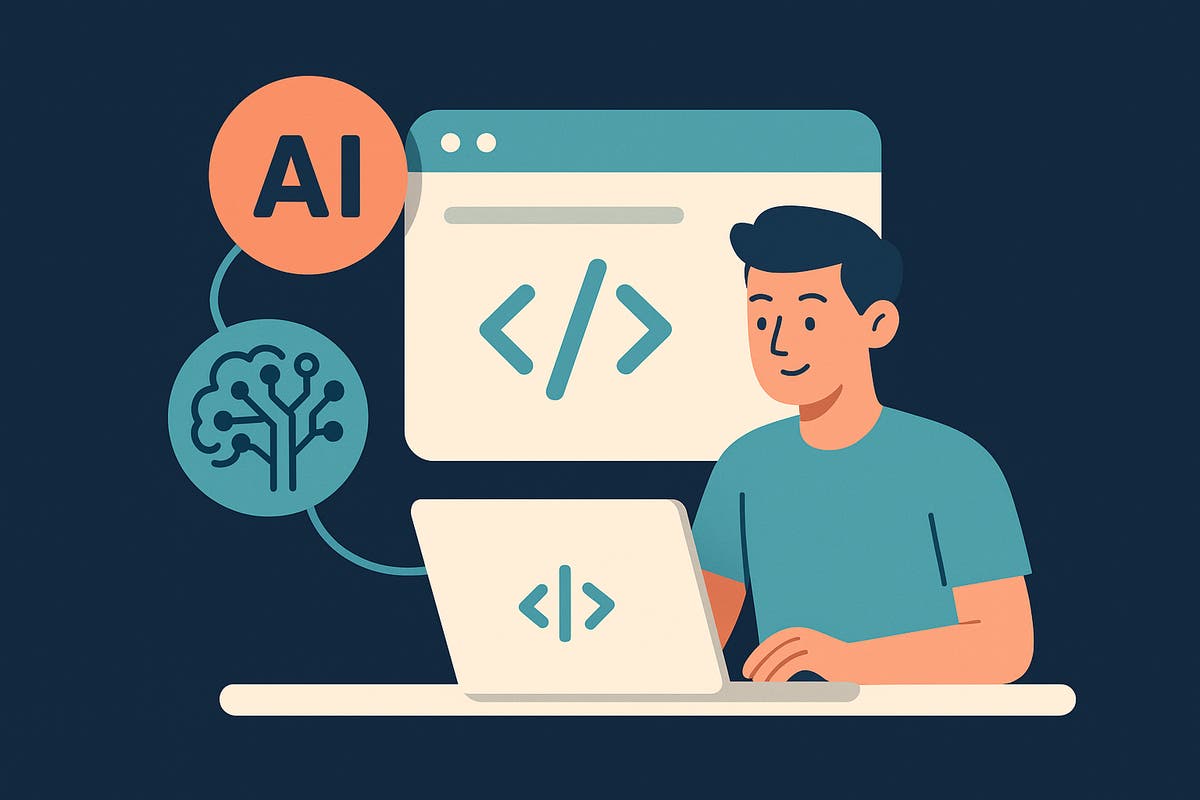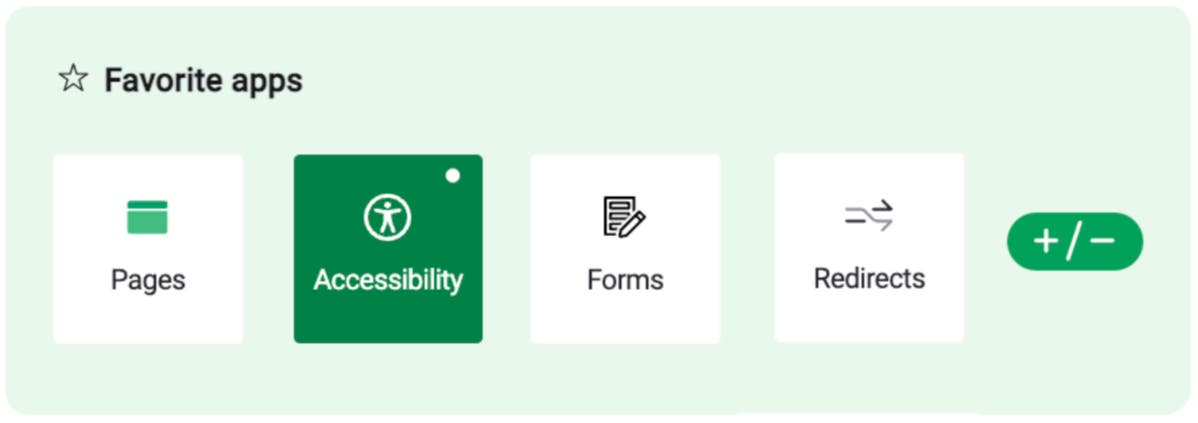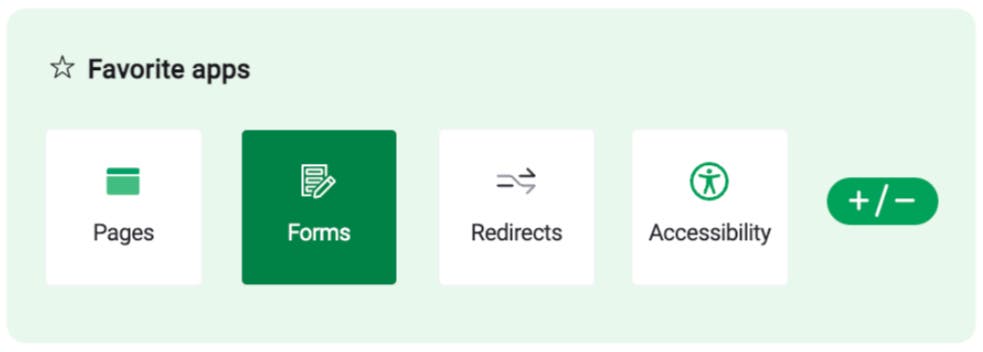Expanding the capabilities of developers in a new era.
The landscape of web development has evolved dramatically with the rise of AI-driven tools, from ChatGPT to specialized assistants. However, while AI has expanded the toolkit of developers, enterprises hoping for a complete AI replacement for the nuanced expertise of human developers—especially for custom and enterprise-level projects—are likely to encounter significant challenges.
AI in 2024: what It means for web development
Artificial Intelligence, often simply called AI, encompasses technologies that simulate aspects of human cognition. In software development, AI is closely linked with machine learning, deep learning, and algorithms designed to address complex problems. These systems, while powerful, are tools meant to support developers rather than replace them.
Generative AI, the current wave of innovation, creates content from user prompts. ChatGPT and DALL-E from OpenAI have popularized text and image generation, while companies like Microsoft, GitHub, and Amazon have integrated AI more deeply into development workflows, bringing advanced tools into mainstream developer usage.
Top AI tools empowering developers
AI tools are transforming how developers approach tasks, from code generation to project management. Some of the most effective tools include:
GitHub Copilot
GitHub Copilot acts as an AI programming assistant, offering code suggestions based on context. It analyzes the code you're writing and other relevant files, helping with everything from syntax to full-feature implementation. It can streamline the development process, but still requires developer oversight to ensure accuracy and relevance.
Amazon CodeWhisperer
Amazon’s CodeWhisperer (formerly Q Developer) provides real-time AI assistance for AWS applications. It offers guidance on AWS architecture, best practices, and documentation while also generating code, scanning for vulnerabilities, and suggesting updates. It aims to automate tasks without sacrificing the need for a developer’s judgment.
Tabnine
Tabnine is another AI assistant that prioritizes security, privacy, and compliance. It accelerates development by providing code suggestions tailored to your coding environment, ensuring that software quality and coding standards are upheld.
Codeium
Codeium is a lightweight AI code assistant designed for developers who need quick, in-context coding support. It integrates smoothly with various IDEs, offering relevant suggestions as you code, along with real-time bug fixes, syntax corrections, and efficient documentation lookup. Codeium is particularly valued by teams working on fast-paced, agile projects, where rapid iteration and flexibility are crucial.
Cursor
Cursor is an AI-powered code editor with a strong focus on collaborative development. It assists with code reviews, automates refactoring, and highlights potential issues before they become problems. Cursor’s context-awareness makes it ideal for large projects with multiple developers, offering recommendations that are aligned with the project’s specific needs.
ChatGPT
ChatGPT, developed by OpenAI, has become a go-to for developers seeking assistance with code assembly, bug fixes, or even documentation drafting. While it's a versatile tool, it requires expert input to ensure the generated content meets precise requirements.
Figma
Figma is a leading collaborative design tool for UI/UX work, enhanced by AI plugins. AI integrations help streamline design-to-code workflows, making it easier to transform prototypes into functional code. Figma plugins like Locofy automate front-end coding for responsive web and mobile applications.
Visual Studio Code
Visual Studio Code (VS Code) is a beloved development environment enhanced by AI-driven plugins. These AI assistants can generate boilerplate code, debug errors, and provide contextual help. However, the output sometimes lacks precision, making human intervention necessary for fine-tuning.
The experiment: testing AI’s real-world capabilities
Many organizations are curious: Can AI truly replace software engineers, or is it more of a supportive tool? We put several AI solutions to the test to see how they fit into the modern development workflow.
Figma + Locofy
Figma’s integration with the Locofy plugin highlights AI’s growing role in blending design with development. Locofy transforms Figma designs into production-ready front-end code, automating some aspects of the process. Here’s what we discovered during testing:
-
Design optimization: Figma’s auto-layout functionality, supported by AI, speeds up the creation of responsive designs. However, manual adjustments are often necessary to achieve perfect results.
-
Interactive tagging: Defining app interactions using AI-assisted tags is intuitive, making the developer handoff smoother.
-
Styling for responsiveness: While AI handles basic styling for various screen sizes, human intervention is still required for more complex designs involving nuanced breakpoints.
-
Adding actions: Setting up onClick actions and preparing for API integration is faster, though customizations benefit from a developer's touch.
Codeium
Codeium emerged as a standout in our testing. It's fast, intuitive, and seamlessly integrates into coding environments, making it an exceptional companion for developers:
-
Code suggestions: It excels at generating precise code snippets that feel more accurate and contextually relevant than other tools. The recommendations are clear, reducing the time spent tweaking AI-generated code.
-
Bug fixing: Codeium’s real-time bug detection and suggestions are top-notch, often pinpointing issues before they escalate.
-
Refactoring assistance: It significantly speeds up code cleanup and reorganization, allowing developers to maintain high-quality code with less effort.
Cursor
Cursor impressed us with its collaborative features and project-specific context awareness:
-
Collaboration: It facilitates better teamwork by offering AI-driven code suggestions that align with project guidelines. Cursor is ideal for environments where multiple developers are working together, as it maintains consistency across the codebase.
-
Refactoring efficiency: The tool shines when it comes to refactoring. It speeds up the process of cleaning and restructuring code, although for complex enterprise applications, developer oversight remains necessary.
-
User experience: Cursor’s interface feels intuitive, making it easy to navigate through complex projects without losing track of context.
Visual Studio Code (VS Code)
Although still popular, VS Code's AI capabilities lag behind some of its newer competitors:
-
Boilerplate automation: VS Code is effective for generating repetitive code and boilerplate. It does a decent job learning from context, but it sometimes lacks the specificity needed for high-complexity tasks.
-
Basic debugging: While the AI assistant offers bug-fixing help, the solutions often need refinement, particularly for advanced or unconventional code.
-
Lack of context: Compared to Codeium and Cursor, VS Code’s AI feels less intuitive in understanding the broader context of complex projects.
Conclusion: where AI tools excel—and where they fall short
In our tests, Codeium and Cursor clearly outshined the competition. Codeium’s precision and speed make it a top choice for code generation and bug fixing, while Cursor’s focus on collaboration and project alignment enhances teamwork and consistency. VS Code, though reliable, struggles to keep up with these more specialized AI tools in advanced scenarios. Windsurf remains a strong choice for smaller projects but lacks the power needed for enterprise complexity.
AI tools are not yet a full replacement for human expertise, but they are powerful allies—helping developers work faster, make fewer errors, and focus on the creative aspects of coding rather than the repetitive ones. For companies looking to innovate without sacrificing quality, combining the strengths of AI with the judgment and creativity of experienced developers is the way forward.
Cautions and Limitations
While AI can significantly enhance development processes, there are limitations:
-
Need for oversight: AI-generated code often requires review and refinement by senior developers.
-
Training dependence: AI tools are limited by the data and scenarios they've been trained on.
-
Security risks: Enterprises must consider security implications, especially with public AI models.
-
Enterprise complexity: AI struggles with the nuanced and customized needs of large-scale, enterprise applications.
Striking the balance: AI and human expertise
AI is a powerful tool that, when used alongside skilled developers, can boost productivity and accelerate workflows. However, relying on AI alone for complex web development can lead to pitfalls. Human expertise remains the cornerstone of successful digital projects.
At Noice, we combine decades of web development experience with ongoing AI experiments. We explore the latest tools while prioritizing reliability, precision, and client-specific needs. Whether integrating with leading platforms like Magnolia, Adobe, and contentful or exploring new AI possibilities, our approach remains human-led, using AI as a supplement rather than a substitute.
 By Blake Kellett
By Blake Kellett


